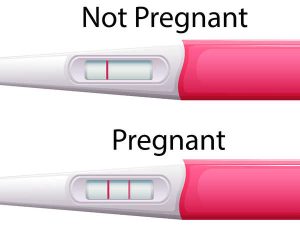Infertility is a common problem that affects many couples who are trying to conceive. Infertility is defined as the inability to get pregnant after 12 months or more of regular unprotected sex. According to the World Health Organization (WHO), about 10% to 15% of couples worldwide are infertile. Infertility can have a significant impact on the physical, emotional, and social well-being of individuals and families.
Infertility can be caused by various factors that affect either the male or female reproductive system, or both. Sometimes, the cause of infertility remains unknown. In this blog post, we will explore some of the most common causes of infertility in men and women, and how they can be diagnosed and treated.
Causes of infertility in men
The most common cause of infertility in men is abnormal sperm production or function. This can result from genetic defects, infections, hormonal imbalances, varicocele (enlarged veins in the testicles), or exposure to certain environmental factors, such as heat, radiation, or chemicals. Abnormal sperm can affect the number, shape, or movement of sperm, making it difficult for them to fertilize an egg.
Another cause of infertility in men is problems with the delivery of sperm. This can be due to blockages in the tubes that carry sperm from the testicles to the penis, such as those caused by infections, injuries, or surgeries. It can also be due to sexual problems, such as erectile dysfunction, premature ejaculation, or retrograde ejaculation (when semen flows back into the bladder instead of out of the penis).
To diagnose male infertility, a doctor may perform a physical examination, a semen analysis (to check the quantity and quality of sperm), blood tests (to check hormone levels), and imaging tests (to check for structural abnormalities). Depending on the cause and severity of infertility, treatment options may include medication (to improve sperm production or function), surgery (to correct blockages or varicocele), assisted reproductive technology (ART) (such as intrauterine insemination [IUI] or in vitro fertilization [IVF]), or donor sperm.
Causes of infertility in women
The most common cause of infertility in women is ovulation disorders. Ovulation is the process by which an egg is released from one of the ovaries each month. Ovulation disorders can affect the frequency or quality of ovulation, making it hard for an egg to be fertilized or implanted. Ovulation disorders can be caused by hormonal imbalances, polycystic ovary syndrome (PCOS), thyroid problems, premature ovarian failure (when the ovaries stop working before age 40), or excessive exercise or stress.
Another cause of infertility in women is tubal disorders. The fallopian tubes are the tubes that connect the ovaries to the uterus. They are where fertilization usually occurs. Tubal disorders can prevent an egg from reaching the uterus or sperm from reaching an egg. Tubal disorders can be caused by infections (such as pelvic inflammatory disease [PID] or sexually transmitted infections [STIs]), endometriosis (when tissue that normally lines the uterus grows outside it), adhesions (scar tissue that forms after surgery or infection), or ectopic pregnancy (when a fertilized egg implants outside the uterus).
Other causes of infertility in women include uterine disorders (such as fibroids, polyps, or congenital anomalies), cervical disorders (such as cervical stenosis or mucus abnormalities), and age-related factors (such as decreased ovarian reserve or lower egg quality).
To diagnose female infertility, a doctor may perform a physical examination, blood tests (to check hormone levels and ovarian reserve), ovulation tests (to check if and when ovulation occurs), imaging tests (such as ultrasound or hysterosalpingography [HSG] to check for structural abnormalities), and laparoscopy (a surgical procedure that allows direct visualization of the pelvic organs). Depending on the cause and severity of infertility, treatment options may include medication (to stimulate ovulation or regulate hormones), surgery (to remove fibroids, polyps, adhesions, or endometriosis), ART (such as IUI or IVF), or donor eggs.





